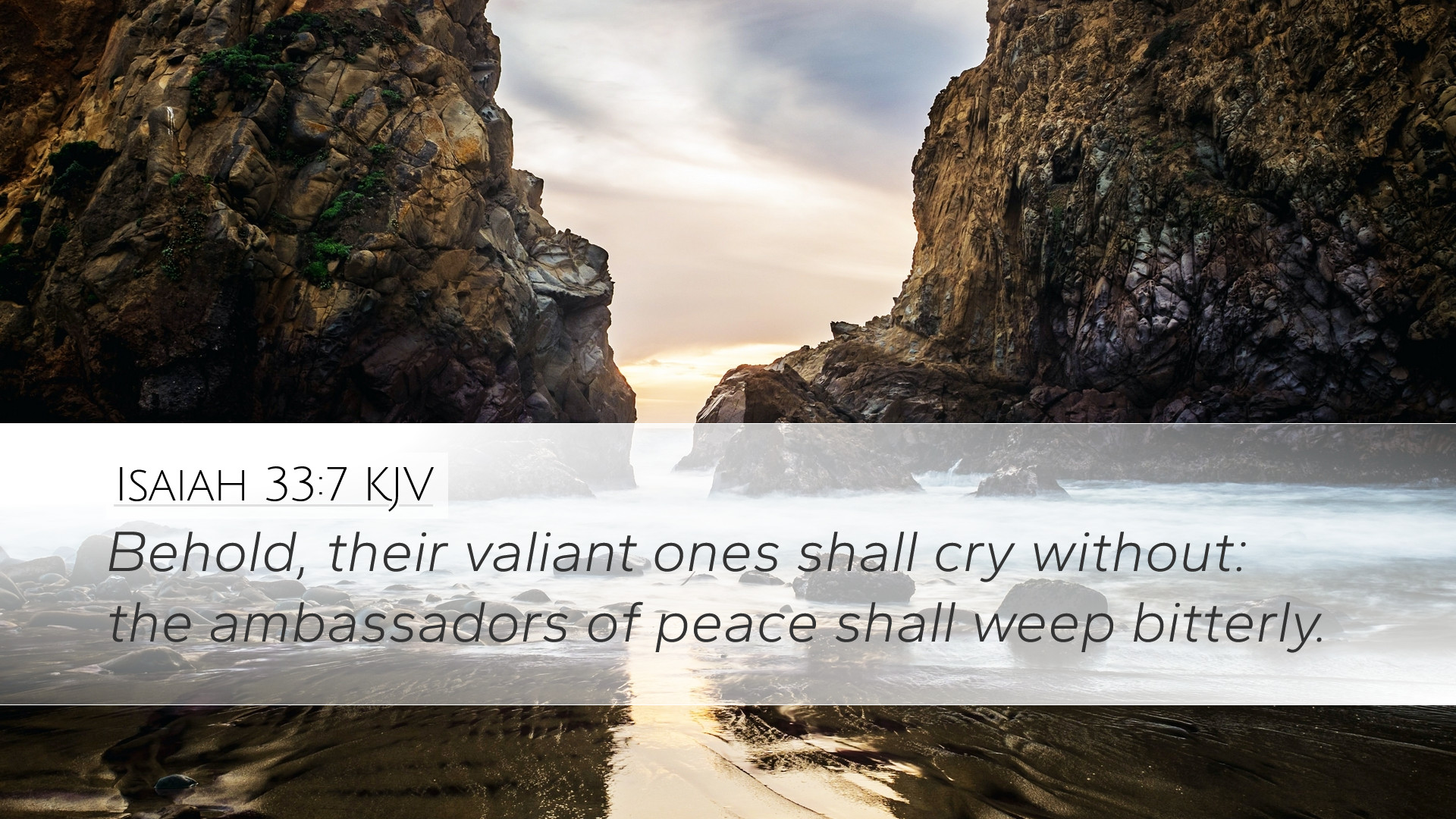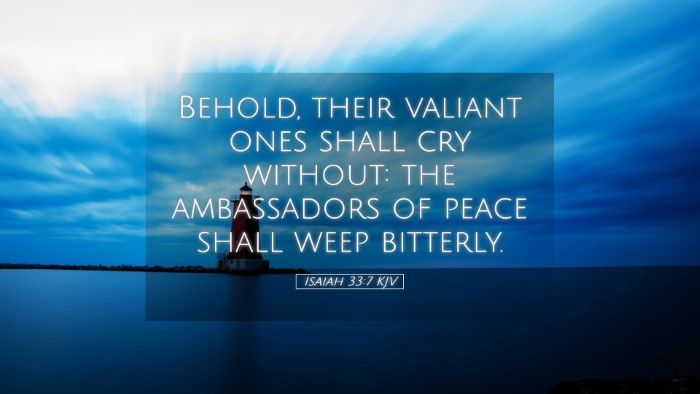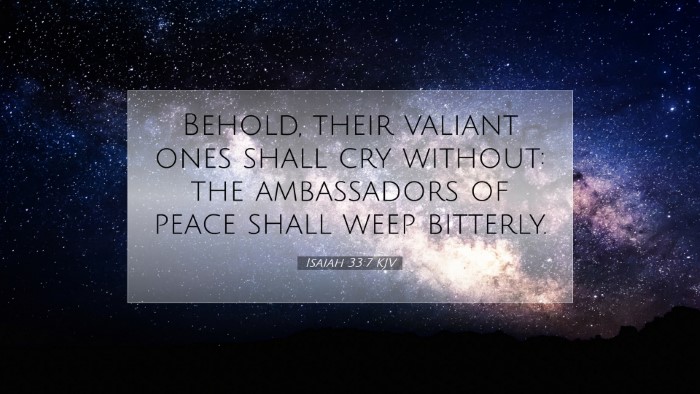Commentary on Isaiah 33:7
Isaiah 33:7 (NKJV): "Their valiant ones shall cry without; the ambassadors of peace shall weep bitterly."
Introduction
This verse from the book of Isaiah presents a poignant description of the turmoil and distress experienced by leaders and envoys during a time of impending judgment. Scholars and theologians have drawn rich insights from this passage, providing a multifaceted understanding that speaks to the human condition and God's overarching sovereignty. This commentary aims to synthesize the perspectives of notable public domain commentators such as Matthew Henry, Albert Barnes, and Adam Clarke, offering valuable insights for pastors, students, and theologians.
Contextual Background
The book of Isaiah is often regarded as a foundational text in the Old Testament, characterized by its profound theological themes and prophetic foresight. Chapter 33 addresses the sins of Israel and the accompanying judgment, framing this particular verse within a larger narrative of God's justice and mercy. The context highlights the effects of external threats from surrounding nations highlighting the emotional and spiritual state of the people.
Exegesis of Isaiah 33:7
Valiant ones and their cry
Matthew Henry underscores the distinction between the valiant men, who traditionally symbolize strength and courage, and their sudden vulnerability in the face of adversity. Their "cry" indicates a desperate appeal for help, suggesting that even the strongest among them are powerless against divine judgment. This verse reflects a reversal of roles, where those expected to stand strong are instead overwhelmed by fear.
Ambassadors of peace weeping
Albert Barnes elaborates on the imagery of "ambassadors of peace" who were sent to negotiate and bolster relations between nations. The mention of their bitter weeping illustrates the failure of diplomacy and the dire situation in which they find themselves. The emotional weight of their tears represents lost hope and the chaos that ensues in the absence of divine guidance.
Theological Implications
Adam Clarke brings forth the understanding that this lament reflects the spiritual state of a nation bereft of God's protection. It serves as a condemnation of reliance solely on human strength and the futility of seeking peace without God's intervention. Scholars have noted that it portrays the sobering reality that peace, apart from God, is a transient illusion.
The Theme of Divine Sovereignty
Throughout Isaiah, the sovereignty of God is a recurrent theme, and this verse reinforces that principle. The hopeless cries of the valiant ones and the bitter tears of the ambassadors reveal a deeper truth: when God's judgment is upon a nation, all human efforts and strength are rendered insignificant. Matthew Henry remarks, "The mightiest men, when brought to the brink of destruction, have no remedy for themselves." This realization of human frailty serves as a call to acknowledge God's authority and seek His mercy.
Application for Today
For contemporary pastors and theologians, Isaiah 33:7 serves as a significant reminder of the condition of our own society. In times of crisis—be it moral, social, or political—the reflex to seek peace through human wisdom and strength often leads to disappointment. The emotional cry of the strong and the bitter weeping of diplomats must necessitate a return to a reliance on God.
- Call to Humility: This verse encourages humility among leaders and individuals alike, recognizing the limits of human capability.
- Prayer for Guidance: It emphasizes the need for prayer and spiritual insight, seeking counsel from the Lord above all else.
- Understanding God’s Will: The acknowledgment that peace can only flourish in alignment with God's will inspires deeper theological reflection and practice.
Conclusion
Isaiah 33:7 presents a vivid portrayal of the human condition in the presence of divine judgment—a compelling reminder that true peace cannot be attained through human efforts alone. The explorations of Matthew Henry, Albert Barnes, and Adam Clarke provide invaluable insights that not only illuminate the scripture but also resonate with profound applications for today's believers. In an era of turmoil, this verse calls us to turn to God, laying aside our strengths, and humbly seeking His peace and guidance.


